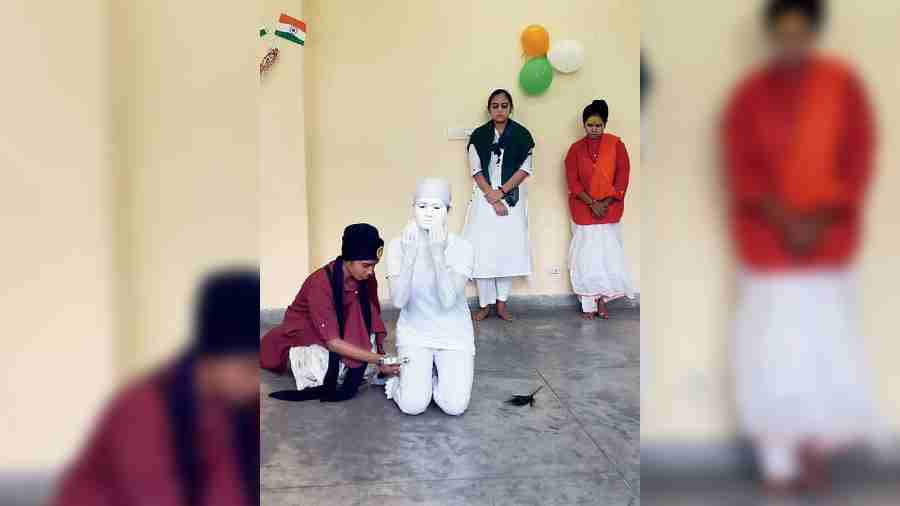A Partition Horrors Remembrance Day exhibition was organised at the National Skill Training Institute for Women in Sector V in the weekend ahead of Independence Day.
The institute, founded in 1987 under the ministry of skill development, offers one-year courses to women who have passed high school in fashion technology, computer operation and programming, cosmetology etc.
The exhibition featured 52 images and newspaper reports of the period around India’s independence, curated by the ministry of culture. The images were of refugee camps, railway stations, meetings of leaders etc. “It was an unplanned Partition without clear strategy,” said N.R. Aravindran, the director of the Regional Directorate of Skill Development & Entrepreneurship.
Guests like Pratap Kumar Ghosh, secretary of Haripada Biswas Pratibandhi Bidyalay, an institute for challenged children in New Barrackpore, shared their thoughts on Partition. “The pains of Partition also caused the foundation of secular India to crack. Refugee camps came up in Ranaghat, Jadavpur and New Barrackpore. A rift was created between Hindus and Muslims. But we must remember that Muslims too suffered,” he pointed out.
A skit that followed had four girls dressed as men from different faiths shaping the same figure in the image of their worshiped one and then starting to fight amongst themselves, till the common figure was revealed as a personification of India, holding the Tricolour, uniting everyone.
All the five girls were from Uttar Pradesh and were students at the institute. They admitted to the communal fracas and caste discrimination rampant in their state. “Yet here we sit and eat together. Ek doosre ki bartan se jhootha bhi khatey, koi problem nahin,” affirmed Ruma Tripathi of Allahabad, making light of her upper caste lineage, as Gorakhpur girl Tabassum Nisa, who played the malleable figure of faith with white body paint all over, nodded in agreement. “The way to counter such divisive beliefs is to make children celebrate festivals of all faiths together,” suggested Rakhi Jain of Agra. Twin sisters Anuradha and Anupama from Ballia made up the quintet. The skit was ideated by their interior designing teacher Jyoti Tamrakar.
